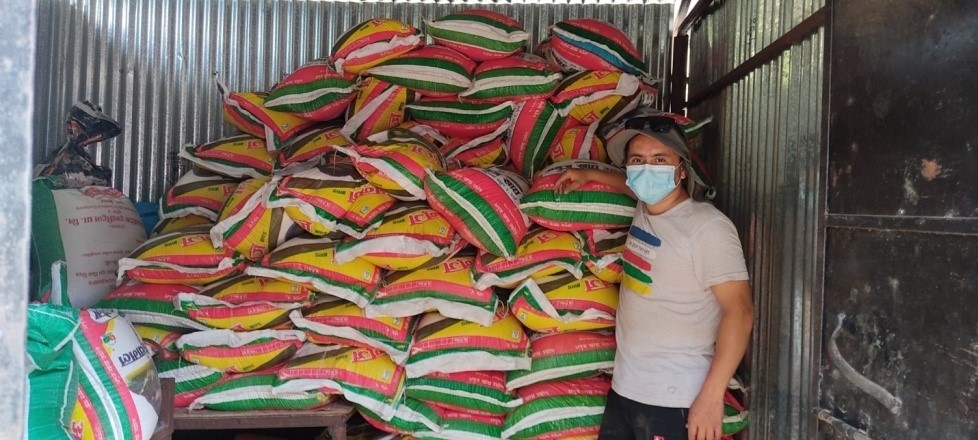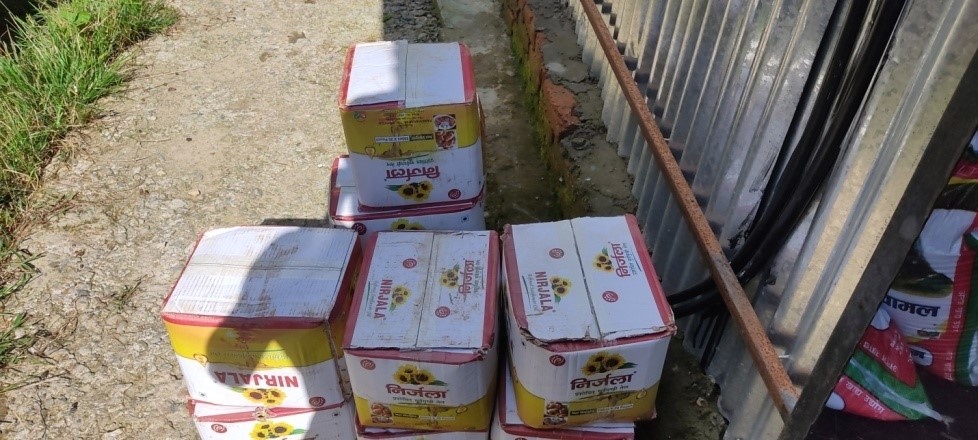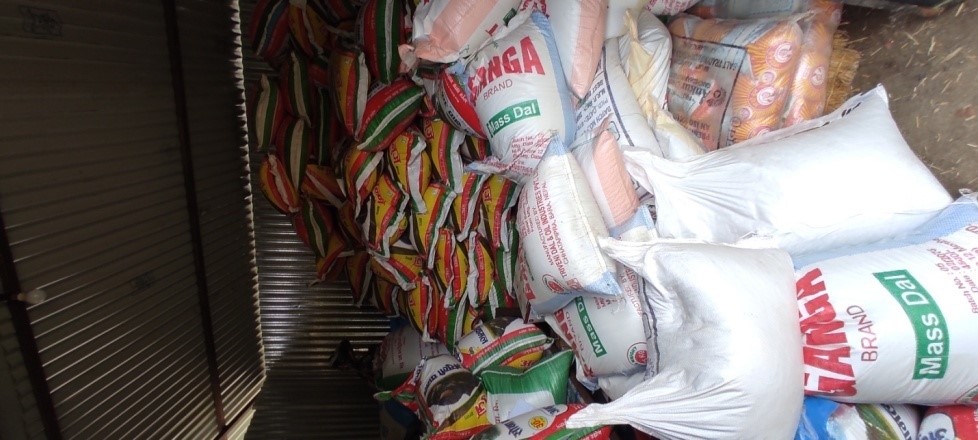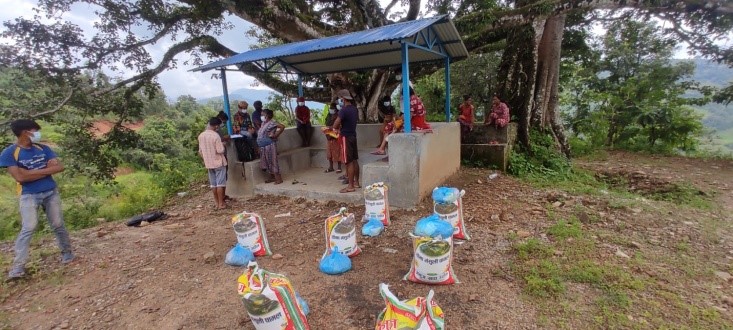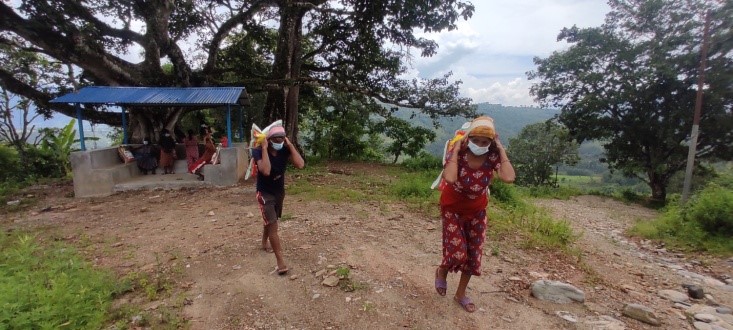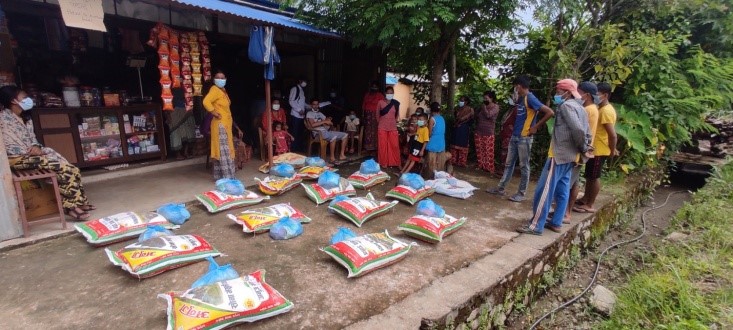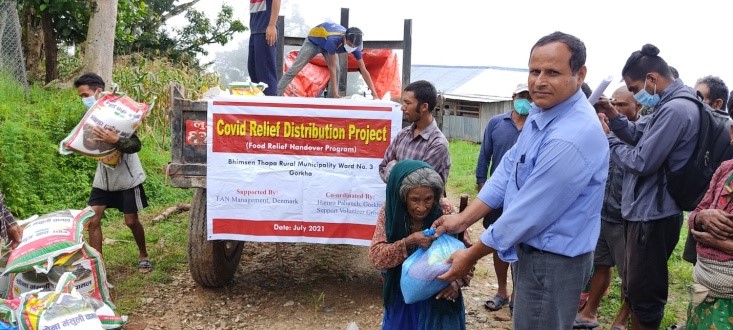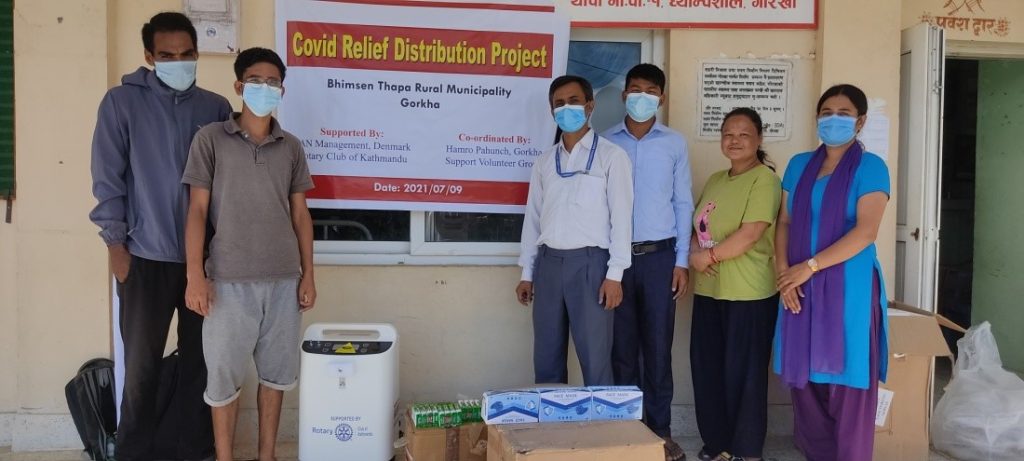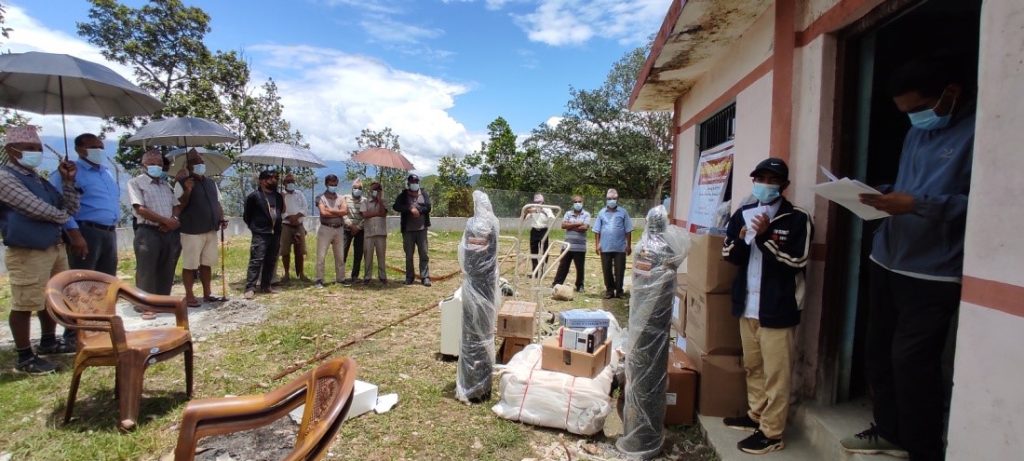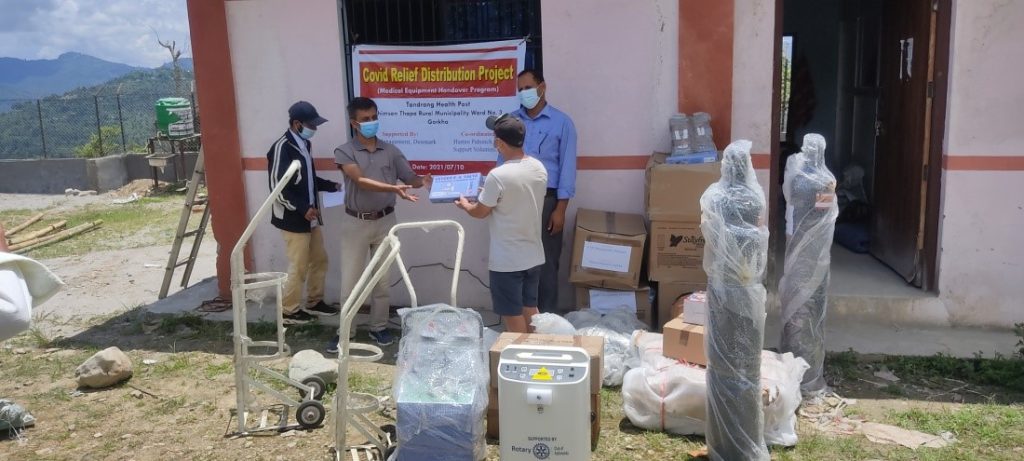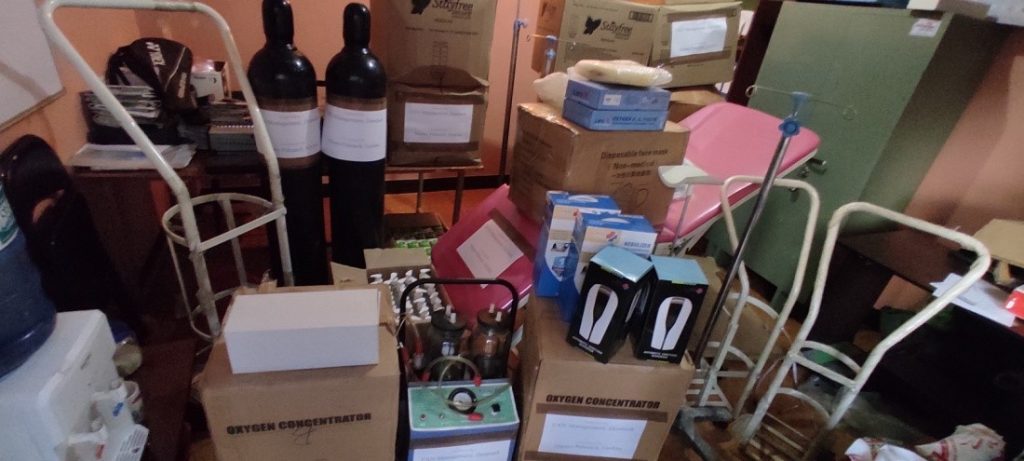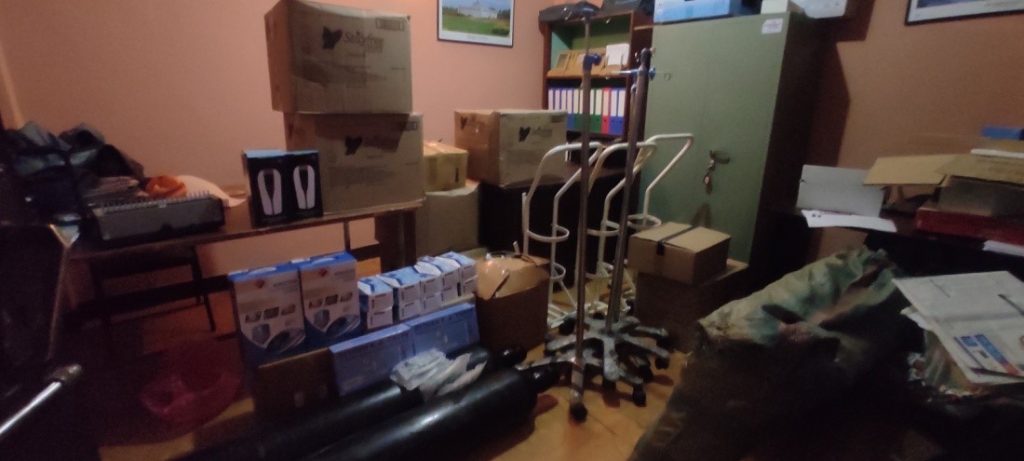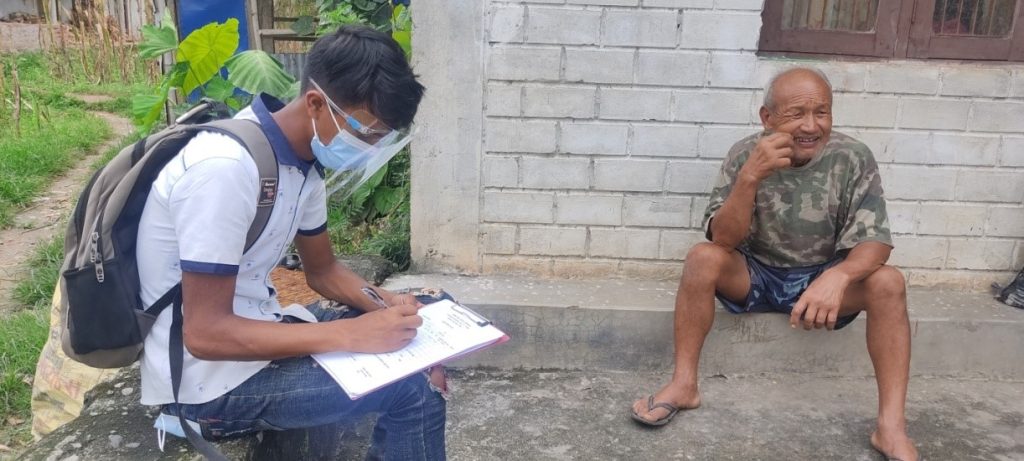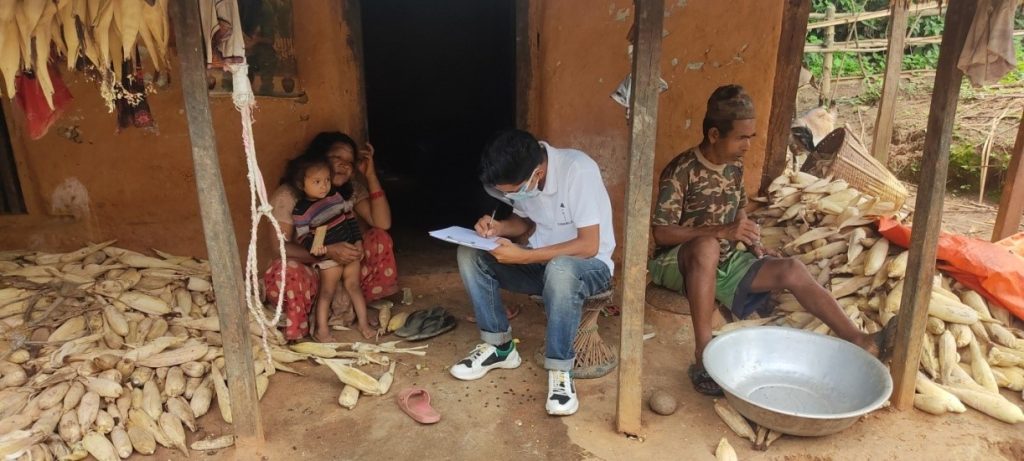Sundhedsklinikken modtager iltkoncentratorer fra FAN, der samarbejder med Rotary Kathmandu omkring indkøb i Kina og flytransport til KTM.
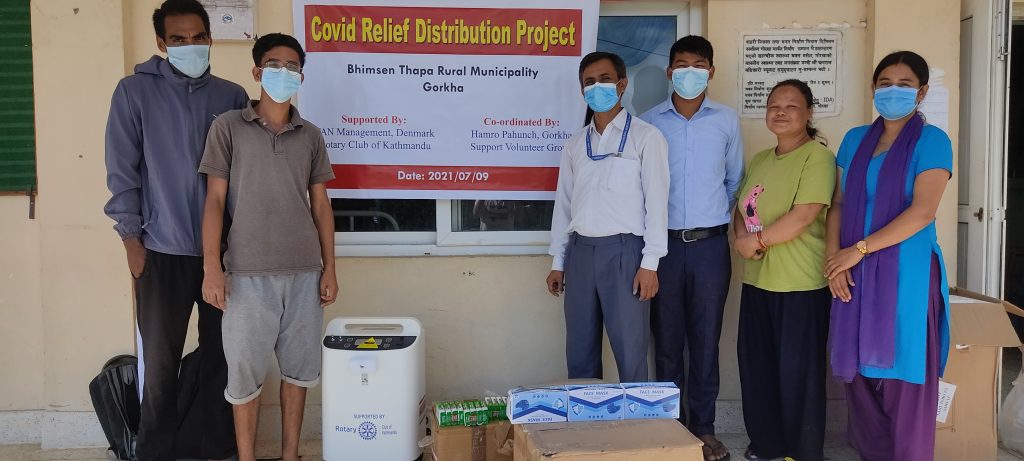
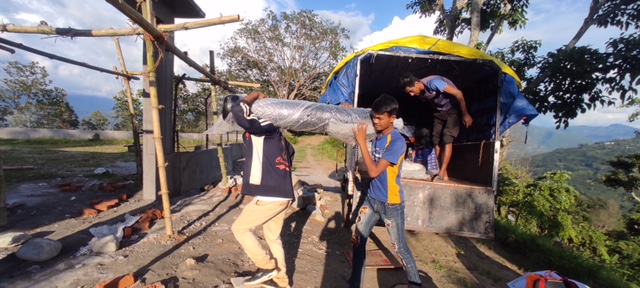
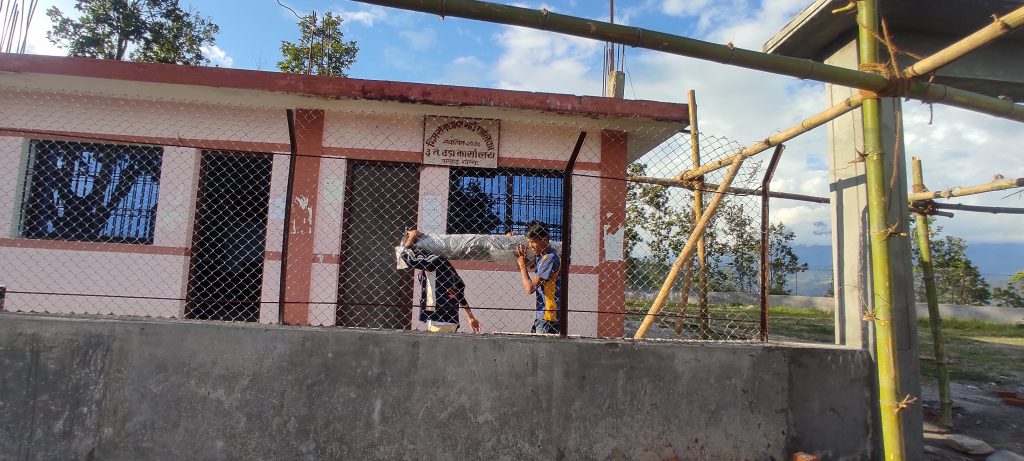
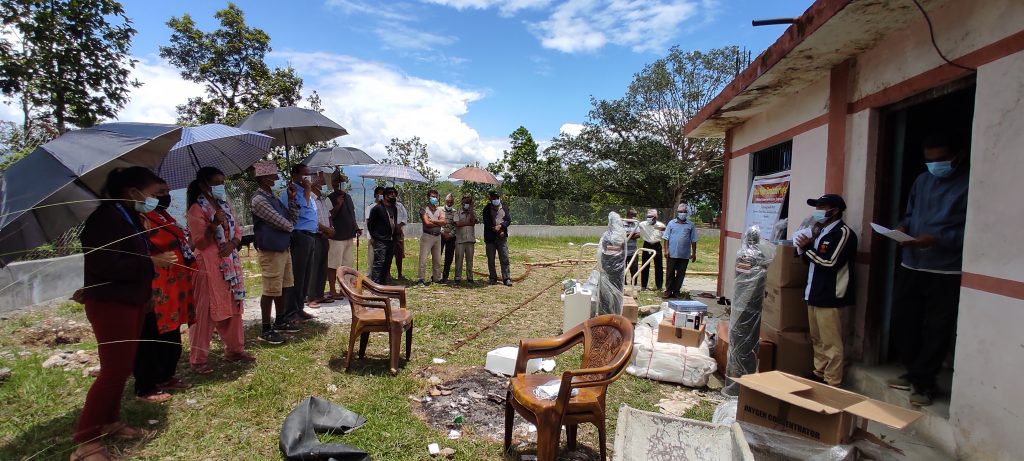
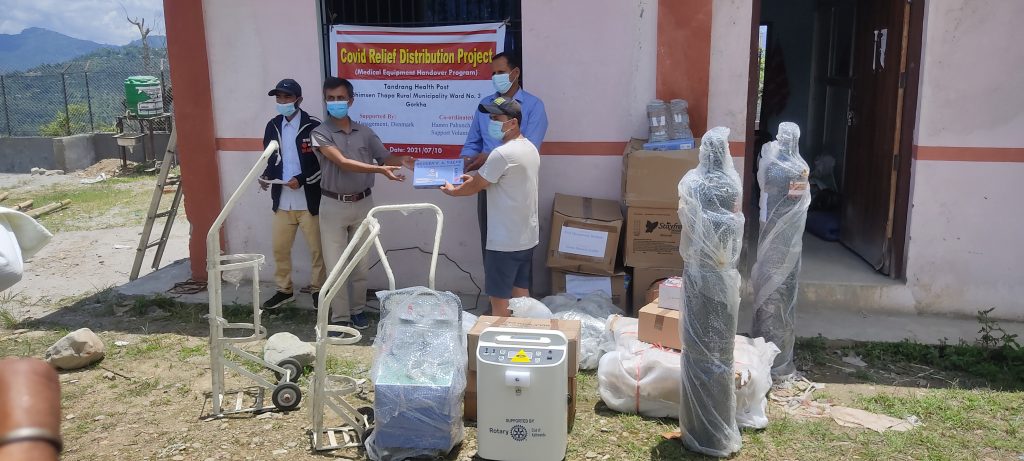
Vi har fået denne rapport fra Ini-9 i juli:
Sorry for late info the mobile network is really poor in village and we don’t have wifi
I had completed the 1st phase medical equipment distribution for Tandrang Health post-03Bhimsen and Bhimsen Thapa Health Center
i am sending you a few pictures of handover program
We had contributed:
Oxygen consontraaitor 2 PCs
Electric suction machine 1pcs
Electric Dispensary 2 PCs
Delivery Bed -1 PCs
Oxygen cylinder 40l 2 PCs
Oxygen trolly 3 PCs
Delivery pad 100box
Sanitary pad for schools 540 box
Personal hygiene safety material 108 set (for 54 women social volunteers)
Now we are working on 2nd phase program with the coordinaton of Support Volunteer Group
We had started a household survey with the help of support Volunteer Group.
But it’s a little riskey most of the villagers had a 40% symptoms of COVID 19 and due to a farming season they are not able to taste a COVID but we are working puting us under the safety.
Hope all is well will post you a details report after I will back to Kathmandu.
If you are using any other social media please let me know attaching a big file through email is getting hard.
Vi har den 25. september modtaget denne afsluttende rapport fra Sundar Chhetri:
- Project Name: Covid Relief Distribution Project
- Project Location: Bhimsen Thapa Rural Municipality ward no: 03, Gorkha Nepal
- Supported By: FAN Management, Denmark
- Coordinated By: Hamro Pahunch, Gorkha & Support Volunteer Group, Gorkha
- Introduction:
- The world is facing an unprecedented challenge with communities and economies everywhere affected by the growing COVID-19 pandemic. The COVID-19 outbreak has been affecting all segments of the society and the human population. However, particularly those members of social groups in the most vulnerable situations, including people living in poverty, older persons, disabled, youth, women, and indigenous people have been severely affected by it.
COVID-19 impacts have led to severe and widespread increases in global food insecurity, affecting vulnerable households. The prices of majority of foodstuffs have sharply increased, reducing the people’s purchasing power. The COVID-19 pandemic has highlighted food system deficiencies experienced by many households. Similarly, the COVID-19 pandemic has posed unprecedented challenges and threats to the health care system, particularly affecting the effective delivery of essential health services in Nepal.
In response to this crisis, Hamro Pahunch in collaboration with FAN Management, Denmark has introduced Covid-19 relief distribution program with an effort to support people residing in Bhimsenthapa Rural Municipality, ward no.3, Gorkha. The collaborative efforts undertaken during covid-19 have ensured that those who are identified as most vulnerable in the community to have immediate access to adequate food and nutrition. Since the particular community is also experiencing a huge surge of Covid-19 infections and the healthcare system is facing an extreme shortage of essential supplies the project aims to supply necessary medical equipments to the community to fight against Covid-19.
- Project Description:
Corona Virus Disease (Covid-19) Pandemic has hit the entire world directly and indirectly. Nepal is also affected by Covid-19 because of poor health system, lack of good health service and lack of knowledge along with poor hygiene among the people. Government has been trying to control this situation with its full effort by mainly applying lockdown measures and nationwide prohibitory orders.
But without adequate vaccination there is no solution to contain the spread of Covid-19. There is inadequate vaccination and the number of people who have been vaccinated is very low and the number of people who are yet to be vaccinated is very high. The primary health care institution has highly suffered because of poor infrastructure, lack of medical equipments and insufficient medical man power. Despite of medical emergency and all the problems they are still doing their best.
In response to the threat of this pandemic, many countries have considered and implemented lockdown and prohibitory measures to restrict the movement of people as part of their response plan. Although, lockdown and prohibitory measure is a good strategy to control the spread of the virus, the government seems incapable to distribute support package for its people. Those daily wage earning laborer and many other people recruited in different employment service are severely hit by the pandemic as they have lost their income source and are unable to sustain their basic needs. Gorkha, being a remote district is affected by the pandemic and since the particular project location Bhimsen Thapa Rural Municipality ward no: 03 is severely affected, it was felt necessary to distribute relief food package support to the affected households on a priority basis to about 300 households and to strengthen and support the local health services by providing the required medical equipments.
Target group:
- Medical equipments is targeted for Tandrang Health Post, Bhimsen Thapa Rural Municipality ward no: 03 and Bhimsen Thapa Rural Municipality Health Department which is responsible for all the health service system management of the Rural Municipality.
- Food package support for all the needy household of Bhimsen Thapa Rural Municipality ward no: 03 ( around 600 Households).
- Sanitary pad for the school going girls
Medical equipments’ list:
As per the discussion and demand from the Tandrang Health post following medical equipment was planned for distribution in 1st phase.
S.N | Description | Unit | Quantity |
| 1 | Oxygen Concentrator | No. | 1 |
| 2 | Oxygen Cylinder | No. | 5 |
| 3 | Glucose Stand | No. | 5 |
| 4 | Cylinder Trolley | No. | 5 |
| 5 | Sanitizer Dispenser (Electric) | No. | 1 |
| 6 | Electric Suction Machine | No. | 1 |
| 7 | Nebulizer Machine | No. | 1 |
| 8 | Water Purifier | No. | 1 |
| 9 | Delivery Bed | No. | 1 |
In addition we have received 2 oxygen concentrator of 10 ltr. from Rotary club of Kathmandu through the coordination of FAN management, Denmark on 4th July 2021 at Kathmandu. The Health in charge of Rural Municipality Mr. Bhesh Raj Khanal has requested to provide 1 oxygen concentrator for health post of ward no: 05, surgical face mask, sanitizer and hand wash soap for all the 54 Female community Health Volunteers (FCHVs) of the rural municipality. After meeting with the Tandrang Health Post management committee and its staffs the final list has been updated as follows for the 1st phase.
| S.N | Description | Unit | Quantity | Remarks |
| 1 | Oxygen Concentrator | No. | 1 | Tandrang Health Post |
| 2 | Oxygen Concentrator | No. | 1 | Bhimsen Thapa RM ( Ward No:05) |
| 3 | Oxygen Cylinder 40L. | No. | 2 | Tandrang Health Post |
| 4 | Glucose Stand | No. | 3 | Tandrang Health Post |
| 5 | Cylinder Trolley | No. | 3 | Tandrang Health Post |
| 6 | Sanitizer Dispenser (Electric) | No. | 2 | Tandrang Health Post |
| 7 | Electric Suction Machine | No. | 1 | Tandrang Health Post |
| 9 | Nebulizer Machine | No. | 2 | Tandrang Health Post |
| 10 | Delivery Bed | No. | 1 | Tandrang Health Post |
| 11 | Delivery Pad | No. | 50 | Tandrang Health Post |
| 12 | Oxygen Mask | No. | 5 | Tandrang Health Post |
| 13 | Oxygen Regulator | No. | 2 | Tandrang Health Post |
| 14 | Sanitizer | No. | 108 | For 54 FCHVs of Bhimsen Thapa RM |
| 15 | Surgical Mask | No. | 108 | For 54 FCHVs of Bhimsen Thapa RM |
| 16 | Dettol Soap | No | 108 | For 54 FCHVs of Bhimsen Thapa RM |
| 17 | Sanitary Pad | No. | 1000 | For School going Girls |
| 18 | Dettol Soap | No | 30 | Tandrang Health Post |
| 19 | Dettol Soap | No | 262 | For Schools |
The pandemic has also led to the increase in global food insecurity, affecting vulnerable households in almost every country. Apart from medical equipments and hygiene products, around 300 households are expected to receive food and basic necessities package. Since many households are struggling to put food on the table, the project aims to relieve those vulnerable households from acute food insecurity and to lift them out of the cycle of hunger and poverty.
In order to supply essential food items during the critical times and to reduce the risk of famine, the project has arranged the below mentioned food and basic necessities package for 300 HHs.
Food Package List
| S.N | Description | Unit | Quantity |
| 1 | Rice | Bag (30kg) | 1 |
| 2 | Lentil | Kg | 4 |
| 3 | Salt | Kg | 2 |
| 4 | Cooking Oil | Ltr. | 2 |
| 5 | Mix Beans | Kg | 2 |
| 6 | Soap | No. | 6 |
The household survey form is prepared to record the details of the family members at ward level which was expected to 600. Each household is required to fill the form before receiving food and basic necessities package. Additionally, the family who are in dire need of the food and basic necessities shall be prioritized while distributing the package. The priorities shall be determined on the basis of the form filled by the households.The number will be increase based on the need. The sample of the form is attached in Annex -I. Some of the image related to filling up the form is attached in Annex -II.
Note:
Above Medical Equipments and hygiene products has been collected and proper counting and inspection of all the equipments and products has been done by the Program Coordinator Mr. Sundar Chhetri along with Team Member of Hamro Pahunch on 7th July 2021 at Kathmandu Contact Office of Hamro Pahunch. Photographs related to the medical/health equipments are attached in Annex- III.
The medical equipments, hygiene products, food and basic necessities packages were dispatched on 9th July 2021 from Kathmandu and conferred by Mr.Sundar Chhetri on 10th July 2021 to the Bhimsen Thapa Rural Municipality Office and Tandrang Health Post at Gorkha and sanitary pad were handover to the principal of respective school on 11th July 2021 which will be later distributed to the female students as per need.
The program is divided into two phases. Since many households had migrated to different places, we were able to fill 467 households’ forms. In the first phase, about 214 households were recognized as capable of receiving the food package support. The households are selected on the basis of vulnerabilities experienced by the household i.e. people living in poverty, older persons, disabled, pregnant women, indigenous people and others. Remaining 86 households will receive the food package support in the second phase of the program. As soon as the first phase was completed, the covid-19 cases spike in all parts of the country. In an attempt to curb the spread of the virus localized lockdown measures were imposed in the district. Also, with the start of monsoon, there have been problems of puddles, flooding and muddy roads which have made our team difficult to reach their destination from Kathmandu. Therefore, second phase of distribution of the relief food support has been postponed as of now and will begin immediately as soon as the covid-19 situation comes under control.
The photographs relating to the distribution of medical equipments to the Tandrang Health Post Committee is attached in Annex-IV. The photographs relating to the distribution of food packages to the households is listed in Annex-V.
Food items for the second phase have already been purchased and are stored in a godown currently. It will be distributed as soon as situation eases. Photograph related to the remaining items are attached in Annex-VI.
Similarly, the details of households who received the relief support during first phase of the program are attached in Annex-VII.
Household Survey
The household survey will be start from 11th July for 4 days in the support of the support volunteer group after collection of all the survey form the program coordinator Mr. Sundar Chhetri along with committee finalized the list of beneficiaries. The food materials have already booked from the vendor and will distribute in the 3rd week of July at the different places of the ward no 03. The safety and social distancing will be maintained in all aspect of the work. After forms were filled, it was scrutinized again by the team members and the authorities from the Bhimsen Thapa rural municipality to select households’ eligible (on the basis of vulnerabilities) for receiving relief support in the first phase of the program. After proper study of the forms, 214 households were found to have been affected the most by the pandemic. Later, the eligible households were called to receive the package afterward.
Financial Report
As per the agreement the money of NRs 18, 63,000/- In words Eighteen Lakhs Sixty Three Thousand only out of $16200 has been received on 29th June 2021 from Nepal Development society with the coordination of Human Practice Foundation (HPF). The financial detail is already submitted to Human Practice Foundation on 3rd September 2021.
Recommendation
Irrespective of the success in the first phase of the program, following suggestions and recommendations from the households were realized:
- Access to health care
While access to healthcare services is critical for a population’s well-being and optimal health, yet rural residents face a variety of access barriers. The challenges that rural residents face in accessing healthcare services contribute to health disparities. The households often encounter barriers to healthcare that limit their ability to obtain the care they need. In order for households to have sufficient access, necessary and appropriate health care services must be available and obtainable in a timely manner. Even when an adequate supply of healthcare services exists in the community, there are other factors to consider in terms of healthcare access. Therefore, during survey it was realized that the household expects:
- Free medical health checkup that aims to provide free medical and surgical services to poor communities with varieties of medical general and specialized services.
- Health Literacy among the households
- Awareness on stigma associated with menstruation and the discrimination faced by female who menstruate.
- Refer cases to surgeries if required.
- Access to technology
Rural areas often struggle to achieve the same educational standards as more densely populated regions. Online learning can be helpful for students during the covid-19 crisis, but shrinking budgets and strained resources limit their access to technology/gadgets for online education. Students do not have access to smart phones or laptops to attend online classes. Similarly, teachers are facing several challenges in the online mode of learning (slow internet and connectivity issues). Regardless, it would be helpful for the students if they are offered smart phone which would be beneficial for them while taking online class.
- Training Programs
It is necessary to identify relevant training and employment needs and opportunities, which can improve income generation for households in rural areas. Such as livestock training, weaving training, agriculture training program, poultry farming, organic farming and so on.
- Reconstruction of health post
The hospital building was destructed by earthquake that occurred in 2072 B.S. A temporary health post has been built. A detailed study for its proper reconstruction, reinforcement and renovation of the hospital are needed at this point of time.
- Access to education materials
Due to financial constraints, the households are not able to furnish education material for their children. It would be helpful if pens, calculator, notebook, book and other stationery items are provided to the students.
Conclusion
The first phase of the program was completed effectively with the positive response from the households and the health committee. We really appreciate all the funding provided by FAN, Denmark to support a social cause. Also, the households remaining on the waiting list of the second phase of the program will receive it as soon the lockdown eases and weather condition improves.
